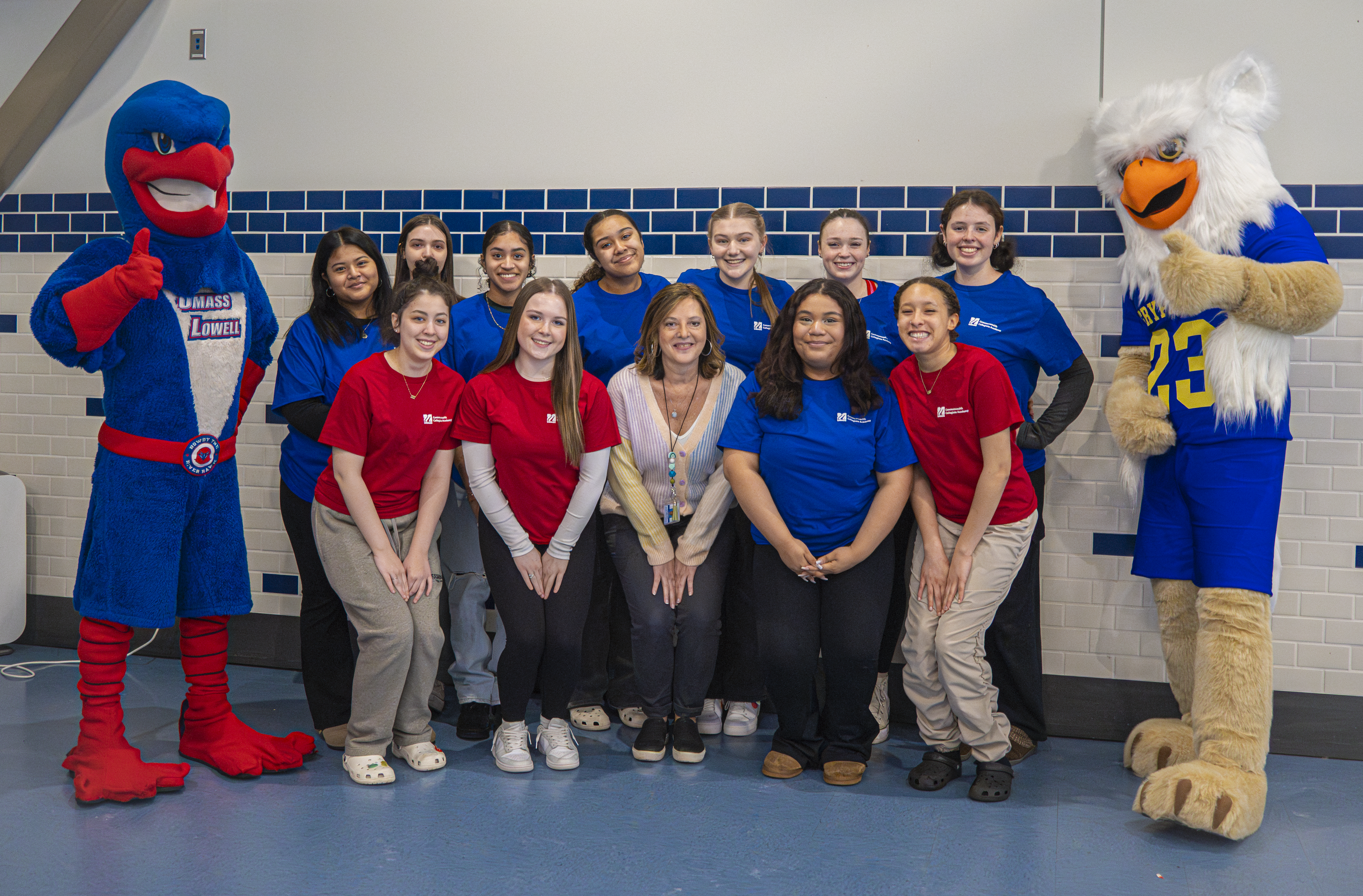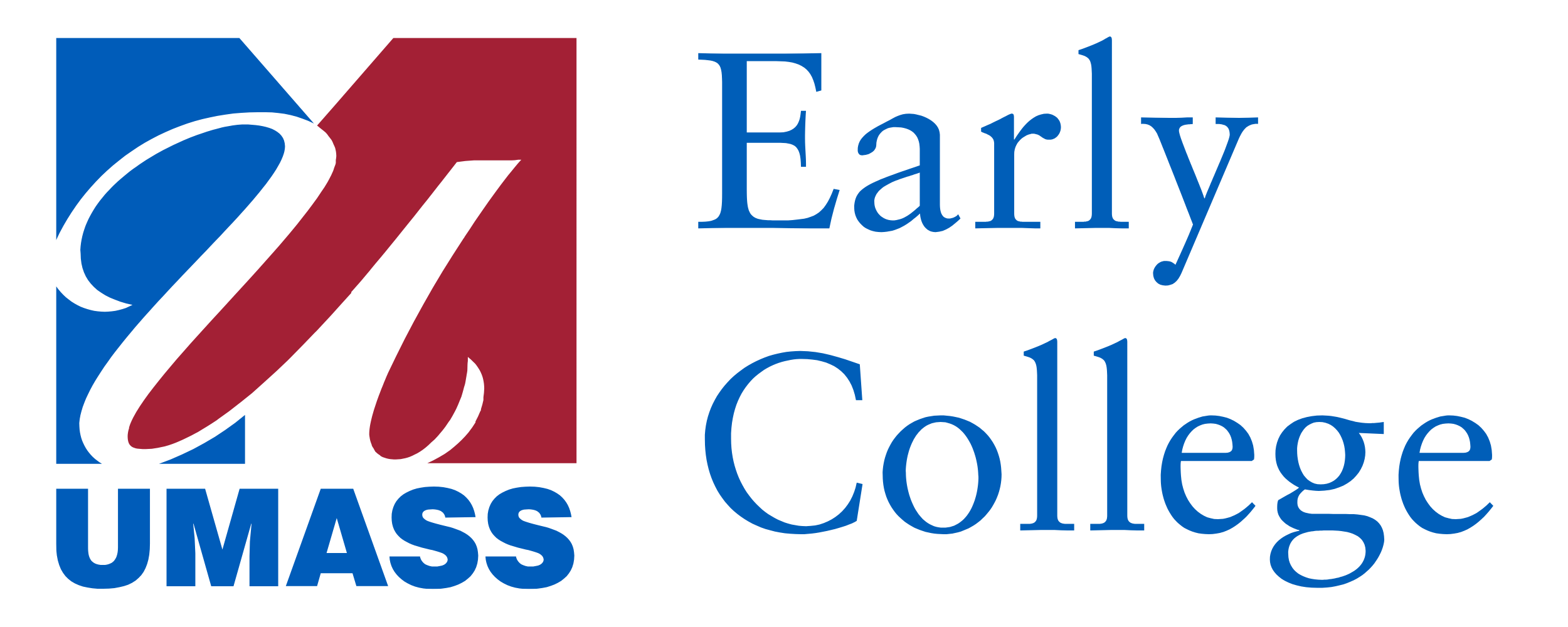How UMass Early College Works
- Students enroll in UMass courses taught by UMass faculty during the regular school day at their high school at no cost to the student or their family.
- Students are supported by high school teachers and staff who collaborate with UMass faculty to encourage their success in the course.
- During the school year, students will be invited to attend special events on their partner UMass campus to introduce them to the in-person college experience.
- Students may have the opportunity to enroll in an optional summer program to earn additional college credits.
- Students may earn up to 24+ credits and can take courses in an academic pathway, which is a guided sequence of courses that is connected to a career path.
- Courses only enroll high school students in a cohort experience.
- High school Early College staff will be able to answer questions about the program to help you decide if it is a good fit. They will work with teachers and school counselors to identify students who would enjoy and benefit from Early College.
College and Career Exploration Pathways
UMass Early College is designed to help students understand the relationship between the academic pathway they choose and the careers that these courses prepare them for. Students will learn about exciting professional pathways and explore how they can use their collegiate and pre-collegiate career to prepare for them. There are many opportunities for students to choose from, such as:
- Art & Design
- Business
- Environment Science & Sustainability
- Education
- Engineering
- Liberal Arts
- Pre-Medical
- STEM
- Wellness and Public Health
What is the difference between Early College and Dual Enrollment?
In the UMass Early College program, students participate in a structured and supported program at a participating high school that allows them to take college courses during their high school day as part of their high school curriculum. Early College students receive additional support and experiences, in partnership with their high school and college, to help them succeed and be prepared for college life. Students take courses in academic pathways, which are a guided sequence of courses tied to a career.
Dual enrollment programs provide opportunities for high school students to take college level courses at a free or potentially reduced cost, but not necessarily within a pathway or with the support services that an Early College program may provide. UMass offers many dual enrollment opportunities that are open to students across Massachusetts. To learn more about dual enrollment courses opportunities at UMass, please visit:

Greater Lowell Technical Early College Students & Staff pose for a picture with Rowdy the River Hawk & Greater Lowell Tech's Gryphon.
